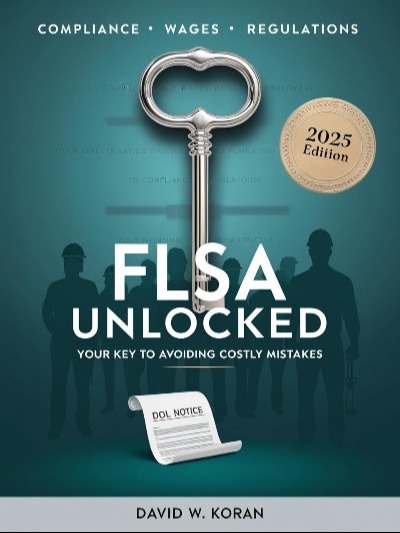Discretionary vs. Nondiscretionary Bonuses: How They Impact Overtime Pay Under Federal and New York Law

March 9, 2025 | FLSA Audit LLC
Year-end bonuses can feel like a well-deserved reward for a job well done—but did you know they could also affect your overtime pay? Whether you’re an employer or employee, understanding how bonuses are classified under the Fair Labor Standards Act (FLSA) and New York State labor laws is critical to avoiding costly compliance mistakes. At FLSA Audit LLC, we’ve seen firsthand how bonus misclassification can lead to lawsuits, back wages, and penalties. Let’s break down the rules and spotlight real-world examples to keep your business on the right side of the law.
What’s at Stake?
The FLSA requires overtime pay at 1.5 times an employee’s “regular rate” for hours worked over 40 a week. That regular rate isn’t just your hourly wage—it can include bonuses, depending on their type. New York State follows suit, aligning closely with federal rules but with its nuances, like a higher minimum wage ($16/hour in NYC, $15/hour elsewhere as of 2025). Get this wrong, and you could owe retroactive overtime adjustments—or face legal action.
Discretionary vs. Nondiscretionary: The Key Distinction
Bonuses fall into two categories, and the difference determines whether they boost overtime pay:
- Discretionary Bonuses: These are gifts from your employer, given at their whim without any prior promise or tie to your work. Think of a surprise holiday bonus or a “thanks for being great” award. Under both the FLSA (29 CFR § 778.211) and New York law (12 NYCRR § 142-2.2), these don’t affect your regular rate or overtime pay. No strings attached, no extra calculations.
- Nondiscretionary Bonuses: These are tied to your performance, hours, or productivity—like a year-end bonus for hitting sales targets or working extra shifts. The FLSA (29 CFR § 778.208) and New York require these to be factored into your regular rate. That means allocating the bonus across the workweeks it covers, adjusting your hourly rate, and recalculating overtime pay retroactively.
For example, if you earn $20/hour, work 200 overtime hours in a year, and get a $2,000 nondiscretionary bonus:
- Bonus ÷ 2,080 hours (full-time year) = ~$0.96/hour increase.
- New regular rate = $20.96/hour; overtime rate = $31.44/hour.
- Extra overtime owed = $1.44 × 200 = $288.
Miss this step, and you’re shortchanging employees—or exposing your business to risk.
Federal vs. New York: Any Differences?
The good news? New York largely mirrors the FLSA on bonus rules, so compliance is consistent across both levels. Discretionary bonuses are excluded, nondiscretionary ones are included—no major curveballs. However, New York’s higher minimum wage can amplify the financial impact for low-wage workers, and industries like hospitality (hotels, restaurants) face extra scrutiny under state regulations (12 NYCRR § 146-2.3). Joint employment—where staffing agencies are involved—can also complicate things, but it doesn’t change bonus classification.
Real-World FLSA Lawsuits: Lessons from the Headlines
Bonus misclassification isn’t just theoretical—it’s sparked legal battles, including in New York:
- Marriott International (2017): In Shabe v. Marriott International, Inc., front desk agents nationwide (including New York) sued, alleging Marriott excluded nondiscretionary bonuses from overtime calculations. The class action claimed over 10,000 workers were underpaid, spotlighting how even big players can stumble.
- New York Hotel Case (Hypothetical Example): Imagine a mid-sized Manhattan hotel promising a $1,500 year-end bonus for perfect attendance. When overtime wasn’t adjusted, employees filed a claim with the New York Department of Labor, winning back wages plus penalties. This reflects a common pitfall we see in audits.
These cases show why clear bonus policies—and regular FLSA audits—are non-negotiable. Missteps can cost thousands in back wages, legal fees, and reputational damage.
Why It Matters for Your Business
For employers, misclassifying a bonus as discretionary when it’s not can trigger investigations by the U.S. Department of Labor or New York DOL. Employees might miss out on rightful pay, while businesses face unexpected liabilities. In industries like hospitality or retail—prevalent in New York—the stakes are even higher due to frequent overtime and bonus reliance.
How FLSA Audit LLC Can Help
Don’t let bonus confusion catch you off guard. At FLSA Audit LLC, we specialize in untangling FLSA compliance, from bonus classification to overtime calculations. Our audits catch errors before they become lawsuits, saving you time, money, and stress. Whether you’re a small business or a growing chain, we’ll ensure your payroll aligns with federal and New York law.
Ready to stay compliant? Contact us today for a free consultation at (845) 208-9558

